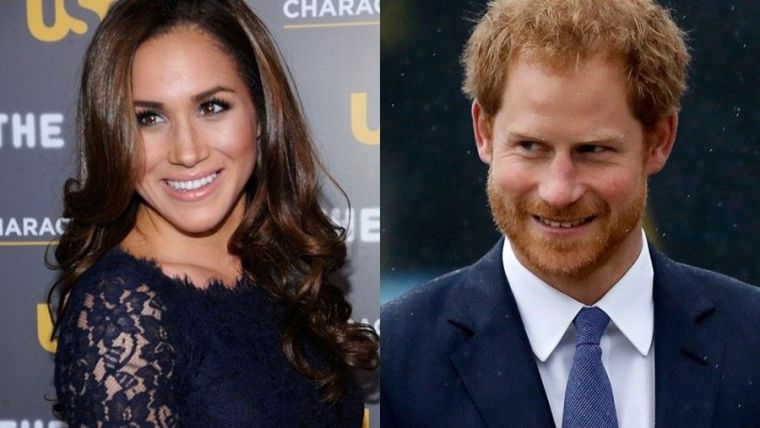Harry and Meghan's wedding won't be quite perfect – and that's good
One of the British monarchy's strengths, and the reason it's survived when so many of Europe's other great houses have not, is its capacity to re-invent itself. We rather romanticise Queen Victoria, but at the end of her long reign, after the years she'd spent as the isolated and pathetic 'Widow of Windsor', the monarchy was deeply unpopular. It was Edward VII, who as the playboy prince had scandalised with his high living and low morals, who rescued it by a public charm offensive. His son's unswerving rectitude and his grandson's model family life – that's George VI, not the appalling Edward VIII – chimed with the times and they were widely admired.
Queen Elizabeth, too, is a surprisingly modern monarch, not least because she had to cope with what many other parents faced: the failure of her children's marriages. She may be royal, but she knows how we feel, people thought.

In the pre-marriage trials of Harry and Meghan there's also that reminder that in the end, they're pretty normal – and that is hugely important.
It looks as though Meghan's father Thomas Markle, who's said he's having a heart operation today, won't be at the wedding after all. She'd love him to be there and is upset. He got entangled with some paparazzi pics and is reportedly distraught because he think's he's messed things up for her. There are embarrassing relatives and a bit of a family feud. There are uncles and step-cousins and half-siblings, and who gets to be invited to the wedding, anyway?
It's all very difficult, and it would take a heart of stone not to feel for her. It's her wedding, after all, and she's to be a princess – can't everything go perfectly in this most fairy-tale-like story?
Well, no – and this reflects what many modern weddings are like. Parents' failure to stay married can lead to awkward encounters at their children's nuptials. We don't always get on with our relatives, not even the closest of them. There are undercurrents of feeling left by years of small jealousies and petty quarrels. We can't always make the right decisions – at least, not the decisions that are going to please everyone.
The difference is that for most of us, these are purely private issues, fought out in private. In Meghan and Harry's case, they are private issues fought out in public.
And while no one would wish this on them, that's a good thing.
There's a conspiracy around most weddings, even when they don't involve princesses, and it's a deeply unhealthy one. It's a myth of perfection. That's why people spend such absurd amounts of money (an average of £27,000 in the UK), why the industry comes up with more and more indispensable trimmings, and why 'the day' has, in our time, become so much more important than all the days that follow – so much so that more and more people are dispensing with it altogether.
When the wedding is more significant than the marriage, something's wrong.
Harry and Meghan's wedding reminds us that for most of us, perfection is unattainable. Vows are made in the mess and muddle of real life. 'For better, for worse' is valid from the moment the rice is thrown, and sometimes even before. In the Anglican wedding service there's a reference to the wedding at Cana, when Jesus turned the water into wine. What's not always grasped, though, is that he stepped in at a point of crisis; the wine was running out, another social disaster and the worst possible beginning for a young couple. The miracle, though, was that he gave them a new start, and a better one than they had ever imagined possible. He blessed them, not by helping them live up to a standard of earthly perfection, but by a superabundance of grace.
Saturday's wedding will be tinged with sadness, but it will be more real because of that. And perhaps the marriage will be richer because of it – and perhaps it will help puncture that myth of perfection.
Follow Mark Woods on Twitter: @RevMarkWoods











